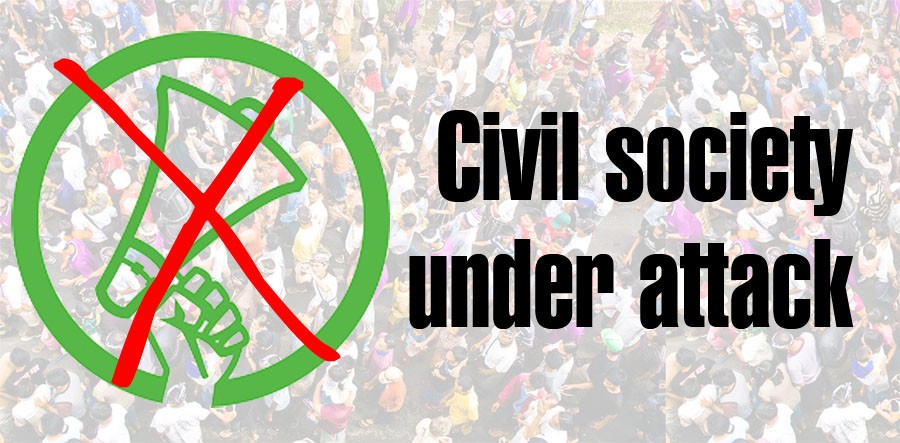

The civil society organisations, be they in the form of INGOs or local NGOs, are under constant threat in Pakistan. The space for civil society is shrinking across the globe as well as in the region. In the unified global economic order, there are certain common factors for this mistrust of civil society. People critical of economic policies, development in general and their consequences in the form of environmental damage and suppression of rights are increasingly unwelcome in any polity.
This crackdown of civil society weaves in well with the threats to freedoms and hence democracy everywhere. Within this broad picture, each country has a unique perspective.
Pakistan’s own unease of INGOs began after the discovery and subsequent elimination of Osama bin Laden in 2011 from a compound in Abbottabad. Dr Shakil Afridi is said to have helped locate bin Laden through a fake vaccine programme and this is believed to be the real reason for him being in prison today.
Even though, the media in the country has for long projected this image of NGOs as ‘agents of the West’, ‘morally bankrupt’ and ‘financially corrupt’ institutions that are destroying the country’s social fabric, post 2011 the state has overtly expressed its suspicion of civil society actors. Since 2015, we have seen action against both local and international NGOs, particularly in certain geographical areas. Balochistan and South Punjab were particularly targeted and they were discouraged. Even though the broad consensus was that the state was opposed largely to rights-based organisations and not developmental NGOs as such, in these two geographical bounds, even developmental NGOs came under fire.
The situation for civil society is bad since 2017. Late last year, Doctors Without Borders (MSF) were refused a No Objection Certificate (NOC) following which they were forced to close their operations in Kurram Agency after working here for 14 years. Alongside, there were legal and procedural hitches for many INGOs many of whom were deregistered or asked to leave the country within a certain period or asked to come and apply again for a fresh registration after a certain time.
Apparently these INGOs haven’t been given a charge sheet; the charges that fly around and have been documented in intelligence agencies’ reports and quoted in the press involve working against the ‘national interest’, involved in sensitive issues related to security and religious matters (closely linked in our case), working for hostile spy agencies, supporting anti-state elements etc.
No element of surprise there. But it has had consequences for Pakistan, reinforcing its image as following inward-looking isolationist policies. No country can afford that in today’s world. Besides, the non-government sector is huge in size and economic potential. The sudden orders have left hundreds and thousands of people jobless in one go and the list of secondary beneficiaries of this sector runs into millions of people.
The local NGOs are equally facing the burden of these state policies. In order to underscore the importance of what civil society organisations do for a country, and Pakistan is no exception, here are a few functions as identified by the World Economic Forum: "holding institutions to account and promoting transparency; raising awareness of societal issues; delivering services to meet education, health, food and security needs; implementing disaster management, preparedness and emergency response; bringing expert knowledge and experience to shape policy and strategy; giving power to the marginalised; and encouraging citizen engagement."
Also read: Civil society under attack
Here is where the complexity lies. Many of these are functions where the governments stand to benefit from the non-government sector, in terms of expertise, service delivery, awareness-raising and yet there are certain functions that the state is not ready to accept, especially the ones that require accountability and transparency. This is how the crackdown against NGOs is being seen in the current geopolitical climate. The civil society likes to link the curbs on freedoms with the commitments made for China Pakistan Economic Corridor (CPEC) which is seen as largely opaque and would rather stay so. It thinks the ‘liberal West’ is therefore being sidelined at all levels possible, in order to shun all talk of rights and freedoms.
This does not bode well for Pakistani society. The government and the civil society which includes the media and the political parties must all sit together and discuss the future of the Pakistani state and its people.